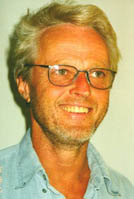Postal address: Institutet för internationell ekonomi, Stockholms Universitet, SE-106 91 Stockholm, Sweden
Visiting address: Universitetsvägen 10, House A, 8th Floor
Fax: +46 (0)8 16 1443
Web page: http://www.iies.su.se/
Contact person: Peter Svedberg, Professor of Development Economics, phone: +46 (0)8 163057. Personal web page.
The Institute for International Economic Studies is primarily a research institute. It was founded in 1962 by Gunnar Myrdal(famous for his work ”Asian Drama – An Inquiry into the Poverty of Nations”, in which the major message was that the only way to bring about rapid development in Asia was to control population, have a wider distribution of agricultural land, and invest in health care and education).
The Institute is run with financial support from the Swedish government, and it is affiliated with the Stockholm University, with its own independent budget. The grant from the government has been supplemented by some private donations, which are administered by a special foundation for the support of the Institute. The main ambition of the Institute is to create a research environment characterized by high competence in economic analysis of international issues.
Research connected to South Asia
 Professor Peter Svedberg teaches Development Economics, at the Master’s level within the ERASMUS program at the Stockholm University. In the early 1980’s he had a visiting position at the Centre for Development Studies, at Thiruvananthapuram, India. 1995–1999 he had an advisory position in the International Expert Group on Development Issues (EGDI), designated by the Swedish Ministry of Foreign Affairs (that ceased to exist in 2007).
Professor Peter Svedberg teaches Development Economics, at the Master’s level within the ERASMUS program at the Stockholm University. In the early 1980’s he had a visiting position at the Centre for Development Studies, at Thiruvananthapuram, India. 1995–1999 he had an advisory position in the International Expert Group on Development Issues (EGDI), designated by the Swedish Ministry of Foreign Affairs (that ceased to exist in 2007).
He is deeply involved with research on the issue of Causes and Effects of Undernutrition and Measurement Problems. In 2000 he published the book ”Poverty and Undernutrition: Theory, Measurement, and Policy” (Oxford University Press) with a foreword by Amartya Sen; in which Svedberg provides a detailed comparative study of undernutrition in Sub-Saharan Africa and South Asia. It has also been published in a paperback edition by Oxford University Press, India, in 2002. More information on the book.
He has also written an article with the same theme in Economic Development and Cultural Change 2002;51(1), named ”Undernutrition Overestimated”. The article is available (as a pdf-file).
Among Svedberg’s other research areas are the issue of Real, Real Price of Non-renewable Resources, and
the issue of World Income Distribution: Which Way?
In connection with the latter area he wrote in 2001 a report for the Swedish parliamentary commission Globkom. The commission – whose final report has not been presented yet – has a mission to formulate an official Swedish policy in important areas on the basis of the overall objective of combating poverty and also achieving a global economic, social and ecologically sustainable development in an approach based on solidarity.
Svedbergs report was called ”Income distribution across countries: how is it measured and what do the results show?”.
Earlier Peter Svedberg has also done research on the issue of Economics of Colonialism and Foreign Investment.
Other South Asia related published material by Peter Svedberg:
• ”Hunger in India – Facts and Challenges”, articles published in Little Magazine, New Delhi, India, 2/2001. Read the article(as a pdf-file).
• ”Misleading about hunger in the world”, translation of an article published in Svenska Dagbladet, October 13, 2001. Read the article (as a pdf-file).
• ”841 Million Undernourished? On the Tyranny of Deriving a Number”. IIES Seminar report, October 1998.
Professor Fabrizio Zilibotti was trained at the London School of Economics and now holds the Chair of Macroeconomics at the department, and has previously held the same Chair professorship at the University College London. He is also Managing Editor of the Review of Economic Studies.
Currently he is supervising a doctorate project on ”Bridging the digital devide: A study on the barriers to IT and Telecom (ICT) adoption in developing countries”. It is is a cross-country study partly focusing on South Asia to the extent to which South Asian countries are in the sample. No doctoral student is however involved in the study on India/South Asia. In November 2005 Prof. Zilibotti received SEK 1 000 000 as a two years grant (2006-07) from Sida/SAREC for this doctorate project. More information on South Asia related grants from Sida/SAREC 2005.
In December 2005 Zilibotti along with three International colleagues, Philippe Aghiony, Robin Burgessz, and Stephen Redding, presented a paper titled ”The Unequal Effects of Liberalization: Evidence from Dismantling the License Raj in India”, based on empirical data from India. Beginning in the 1980s, India moved from central planning to freer markets. This had unequal effects across Indian states. In states where legislation provided a strong defense of worker rights, liberalization had a negative effect on growth. States with more flexible labor markets had a much more favorable development. Read the paper.
He has also written another (shorter) article on Indian reforms, ”Entry Liberalization and Inequality in Industrial Performance”, published in the Journal of the European Economic Association (Number 2-3/2005). The study has been presented in a variety of conferences, including World Bank (preparation of the World Development Report) and European Bank for Reconstruction and Development.